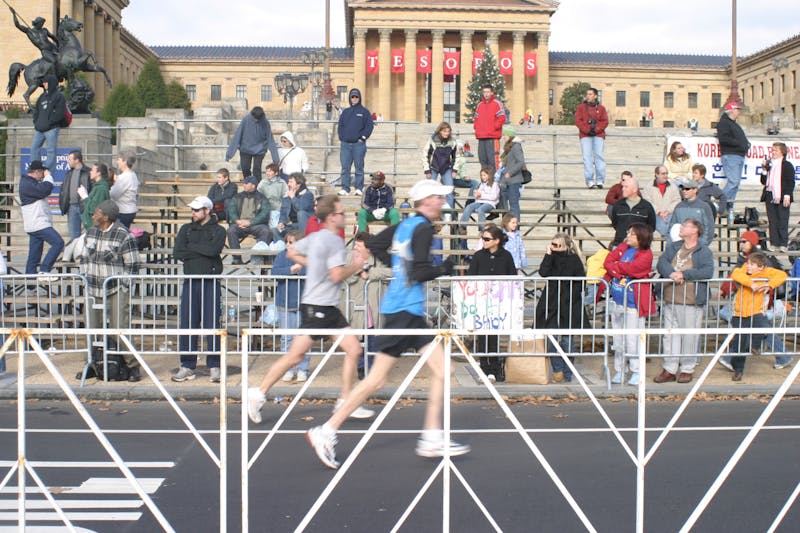Penn Students Embrace Marathon Training: A Trend in Running Culture
Content warning: The following text describes disordered eating, student assault, and death.
As of November 19, students at the University of Pennsylvania are capturing the essence of marathon running on their Instagram feeds. Images flood the platform, showcasing fellow classmates wrapped in thermal blankets, sporting medals, and dressed in stylish athleisure wear after completing the Philadelphia Marathon. With the event drawing both Penn students and residents of Philadelphia together, it raises an intriguing question: when did an entire student body become a community of marathon runners?
For Annie Wu (C ’25), the co-president of Penn’s club swim team, the transition to becoming a runner came as a surprise. Once an avowed non-runner, Annie began training for the upcoming Love Run half marathon scheduled for March 24, 2024. “I hated running,” she said, recalling how she initially struggled with just a mile. Yet, as she gradually surpassed three miles, she found that the incremental challenges became more manageable.
The motivation to run often transcends physical activity, becoming a means to maintain well-being amidst academic pressures. Alex Savage (C ’26) shares, “Once I got to college, I wasn’t participating in sports as much, and I could feel the difference,” highlighting how returning to fitness has bolstered his mental health. Molly Limaye (W, E ’25) adds that running has served as a crucial outlet for managing stress and anxiety, emphasizing the social bonds formed through shared morning runs with friends.
Individual preferences shape the running experience at Penn. For Quinn Liu (E ’25), balancing personal training with social interaction is key; he prefers running solo to maintain focus but still recognizes the value in sharing experiences with peers. Meanwhile, Molly reflects on the strong friendships developed through her running community, illustrating the sport’s ability to foster bonds and support networks among students.
The joys of running often intersect with the complexities of social media. Platforms like Strava foster accountability among runners, but they also present challenges. Molly acknowledges the risk of disordered eating culture perpetuated through influencer platforms like TikTok, where harmful messages about body image and nutrition can easily spread. Many are intentionally seeking healthier content that promotes proper fueling and self-compassion.
However, the personal commitment to running is often shadowed by societal pressures and tragic incidents, such as the death of Augusta University student Laken Hope Riley, which highlights the reality of safety concerns that runners—especially women, queer individuals, and people of color—frequently face while exercising outdoors. Yet, despite these challenges, participating in local marathons has connected Penn’s students to the greater Philadelphia community, opening up conversations about diversity and inclusion within the running culture.
Ultimately, marathon training at Penn represents both a personal journey and a collective experience, allowing students to navigate the challenges of college life while fostering a sense of community and resilience. As Molly aptly puts it, the essence of running lies in its simplicity: “It’s just you, your shoes, and the road.” This trend of marathon participation not only elevates individual health and social connections but also reflects the evolving identity of the Penn student community.
Campus Resources for Health and Wellness
- The HELP Line: 215-898-HELP – A 24-hour service for Penn community members seeking assistance with health and wellness resources.
- Counseling and Psychological Services: 215-898-7021 (active 24/7) – Provides vital counseling resources for students.
- Student Health Service: 215-746-3535 – Offers medical evaluations and treatment for survivors of violence.
- Reach-A-Peer Hotline: 215-573-2727 (9 PM to 1 AM daily) – A peer support hotline connecting students to resources and assistance.
- Penn Women’s Center: 3643 Locust Walk – Confidential counseling and support resources.
This article utilizes the focused keyword “marathon training” and is structured to optimize for SEO while remaining informative and neutral. Backlinks have been included where relevant.
